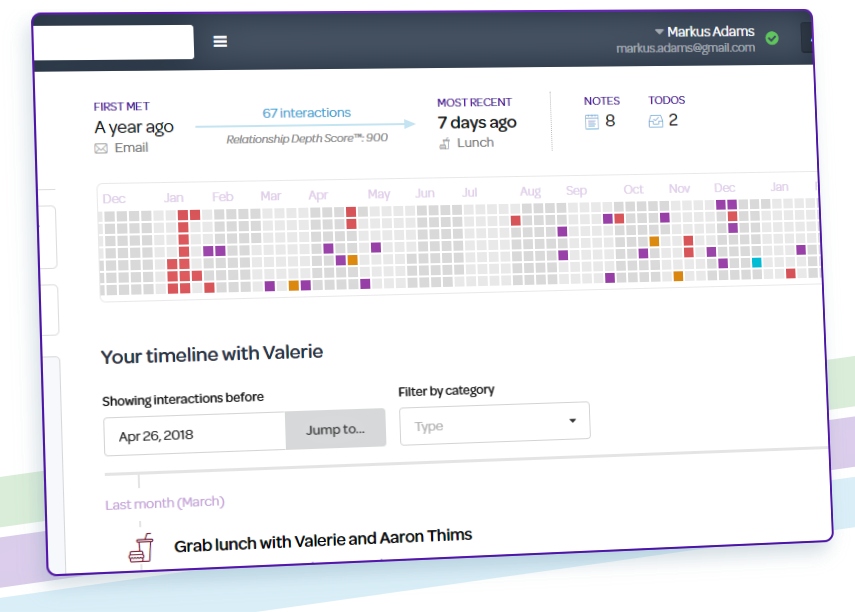Struggling real estate market finds its rising hot spot
The current state of affairs in the housing sector as a whole is not exactly awe inspiring. Markets are struggling, but for dozens of reasons, a hot market is emerging – apartments and rentals which is predictable in a time when unemployment is at an unhealthy rate, lending is tough not only for buyers but builders, and the shift towards renting is rising. This is good news for apartment locators and Realtors that represent investors, but could slow residential agent paychecks for a while.
In March, we noted a rise in residential rental prices skyrocketing would pull former apartment locators back into the game despite drops in locator fees because renting is the new black. We predicted the market would become investor friendly and current statistics support our original theory.
Falling home prices, increases in foreclosures and anemic job growth are weighing down the home market and seem to be the driving force behind this national trend of apartments and rental homes as hot, Zillow Chief Economist Stan Humphries said at last week’s meeting of the National Association of Real Estate Editors in San Antonio.
The foreclosure scenes is more complicated than that
We agree with Humphries that unemployment and anemic job growth (7 million jobs lost “probably permanently” according to NAR’s Director of Quantitative Research, Jed Smith) are the primary factor in the slumped market pushing people toward renting, but note that foreclosure filings are down nearly 30% over the last year.
The drop is not because homeowners aren’t underwater and aren’t struggling, rather banks are slow to process foreclosures because they’ve laid off processing staff and after a long line of illegal foreclosures due to robosigning (and no human review of foreclosure documents) are under investigation by almost every governmental agency that has the power to investigate.
AGBeat reported that it could take decades to process the current load of foreclosures, a backlog that will have a lasting impact on housing. That said, one in three homes is in some state of foreclosure, a stat which most closely supports Humphries’ assertion that foreclosures play a role (although we reiterate they are not rising… yet).
Home prices drop, renting rises
Renting is heating up as home prices have sunk to 2002 levels as the S&P Case-Shiller data reveals month after month of decline in housing prices. Although a layperson would think dropping prices is beneficial to housing and would cause a buying frenzy, the opposite is true as sellers struggle to unload their houses, owners are losing value in their major investment, and a glut in inventory backlogs the market. Rentals are also heating up because of homeowners unable to sell becoming “accidental landlords.”
Housing is struggling as home sales continue to slow, having fallen 3.8% in May, according to the National Association of Realtors’ data just released that shows sales are down 15% from May 2010. Also favorable to a heated rental market is the difficulty buyers are finding with mortgage lending and confidence in ability to get a loan has declined steadily over the last three years.
Another major question mark in the economy is what the government will do with the Frank-Dodd QRM proposal to require 20% down on all home purchases. Just this morning “A diverse coalition of 44 consumer organizations, civil rights groups, lenders, real estate professionals and insurers joined with Members of Congress today urging regulators to make important changes to proposed mortgage lending regulations. The Coalition for Sensible Housing Policy released a joint white paper detailing how the proposed risk retention regulation, and the failure to properly define exemptions for Qualified Residential Mortgages (QRM), would significantly harm creditworthy borrowers while frustrating the nation’s fragile housing recovery.”
Leasing is chic
We’ve been writing for some time about the stigma around renting disappearing. There is even a rising “Generation Rent” as the American Dream shifts away from the idea of mandatory homeownership just as we shifted away from the idea of a mandatory nuclear family.
People of affluence are no longer afraid to rent or admit that they rent. Recently, I spoke at a women’s group and one of the other speakers had on Manolo Blahniks (from this season, mind you) and talked about her new little condo downtown she was renting and admitted that she had downsized and that two years ago she was lying about renting but now felt the shame was culturally fading.
Renting will put a hamper on Realtor commissions for a bit, but we believe that there will be a rising number of people that rent out of choice or fear rather than simply losing their home. The other speaker sold her home in a really nice part of town and had made a very healthy profit but was gearing up for a down economy and was sitting on that nest egg by choice.
The side effect that only the smartest of the smart will plan for is that many of these people that are choosing to rent could end up buying in the very areas they’ve been testing out while they rent in a down economy, opening a future pipeline for Realtors and a niche that could easily be dominated in major metro areas in another few years.
Rents are skyrocketing
Vacancy rates have been at 10% nationally for some time but are projected to perform even better in 2012, dropping to 5% which spells higher rents. We reported rent spikes across the nation with some 17% spikes in Austin and 30% spikes in Boston, now with other cities following suit. “In the last six years, 1.2 million American adults have moved back in with their parents. We expect to see that number rise as double digit rent increases set in. We anticipate local tenant councils will be very busy over the next few years as renters are caught off guard by such spikes. Property owners and multifamily managers will take advantage of this situation to improve cash flow as the housing crisis continues and renters who are scared of buying will have their fears reinforced as they rarely see the difference between the rental sector and the housing sector (they’re all scary now).”
Next up for investors and renters
Vacancies will continue to drop, rents will continue to rise and banks will still keep lending so tight that this time around, new building will not be out of control, nor will it be the primary focus. Units that come online will be redeveloped units, upgraded units or simply houses that aren’t selling that become rentals. This shift toward favorable investments in rental units will all go down in a slow, steady manner as we don’t predict a gold rush. This is simply a natural trend in the real estate cycle, but we don’t predict a major bubble.
Remember, all real estate is local
We report national headlines to our audience of Realtors so you are well informed of trends and shifts in the housing market. We open up our analysis to conversation and ask for local perspectives because even inside a single city or a single subdivision, there will be hot spots and cold spots.
Top housing economist Dr. Mark Dotzour, chief economist for the Real Estate Center at Texas A&M University, said that U.S. housing numbers and reports often do nothing more than cause potential homebuyers in healthier markets to panic. “They’re not helping people make good decisions,” Dotzour said. “It’s kind of a hindrance.” He reminded everyone that good properties in stronger markets continue to hold their value.
All real estate is local and even though the national trends are showing favor for apartments and rental houses which will please investors and apartment locators, it is not a permanent trend, rather a part of the real estate cycle. As the economy improves and lending loosens up a bit, unless 20% is required as a down payment, renters will get the itch to own again or for the first time despite the stigma around renting having faded.
Lani is the COO and News Director at The American Genius, has co-authored a book, co-founded BASHH, Austin Digital Jobs, Remote Digital Jobs, and is a seasoned business writer and editorialist with a penchant for the irreverent.










































BawldGuy
June 22, 2011 at 5:51 pm
This is what we on the investment side of the business call, 'The Perfect Storm'. 🙂
walidmrealtor
June 23, 2011 at 8:18 am
I'd definitely agree that everything is trending in your favor! 🙂
Missy Caulk
June 23, 2011 at 6:58 am
I can say this is true for Ann Arbor, our rentals go in hours not days. I listed one on Sunday,Memorial Day weekend, 3 lease apps my Monday AM, over lease asking price.
Joe Loomer
June 23, 2011 at 9:41 am
I was under the impression the Frank/Dodd bill didn't specifically require a 20% downpayment – but rather required lenders to keep at least a 5% stake in any loan they sell. More skin in the game, so to speak. The problem with it all, is they'll pass the costs on to the consumer. Those without the 20% but with stellar credit will see much higher interest rates than those with the cash – regardless of their credit.
Navy Chief, Navy Pride
Chris Lengquist
July 6, 2011 at 7:42 am
I love it. I stop back by and you are speaking my language…as usual. 🙂
I reluctantly added a property management side but have found it to be an instant hit. And it actually compliments my buy side. So everything works to my favor.
Hope all is well.
Ruthmarie Hicks
July 6, 2011 at 10:14 pm
In our area rents have gone up so astronomically that it may be a tonic for the struggling housing market – particularly at the entry level. A lot of potential buyers with great credit opted out last year because rents were still relatively cheap. Not so now. Some of the buyers who bailed last year are back in force this year because they found out how much more they would be paying. People who NEED to rent have no choice. Those who have a CHOICE are starting to give buying a serious look. When a 2 BR units are going for $3000-$4000 a month depending on square footage – buying becomes a no-brainer.